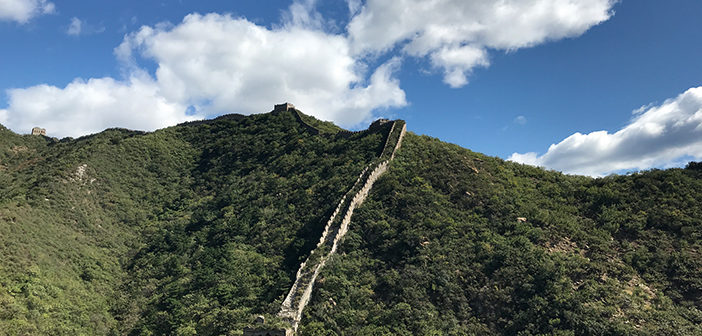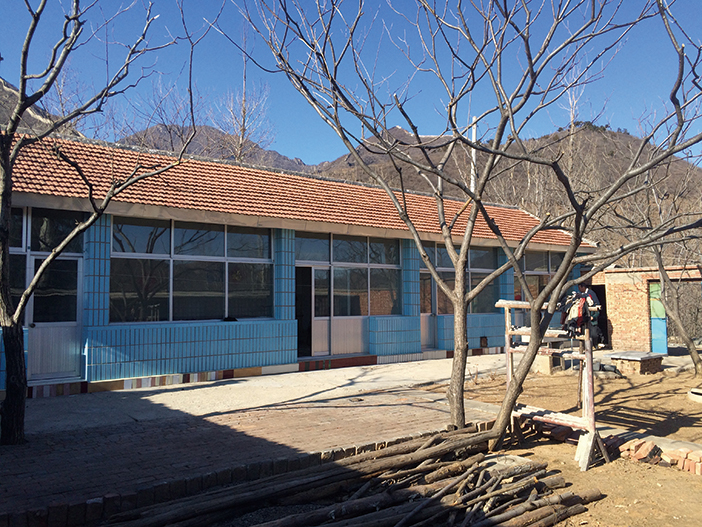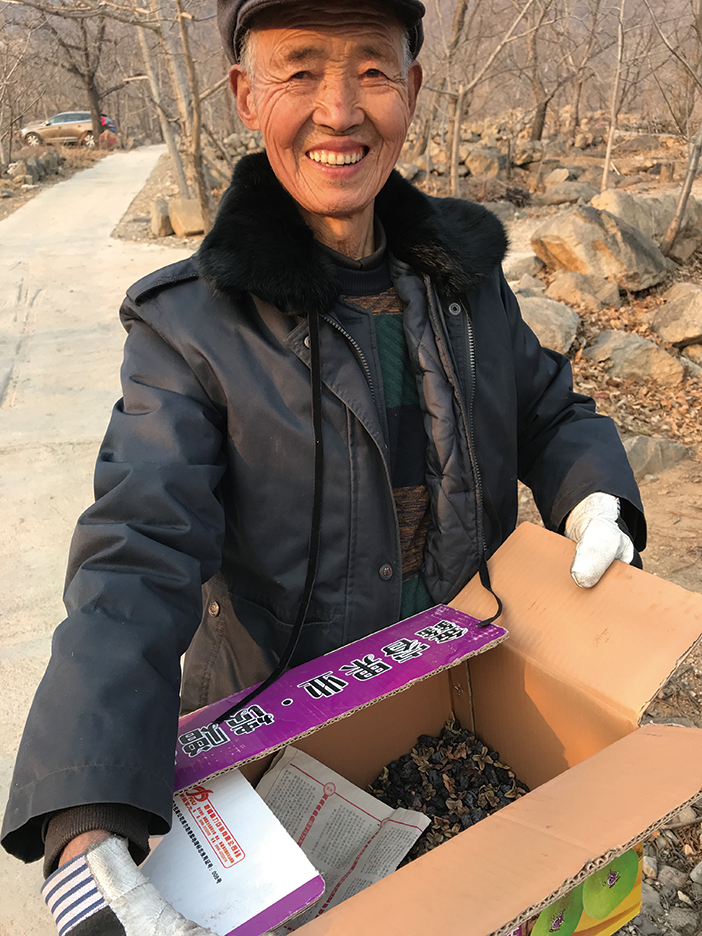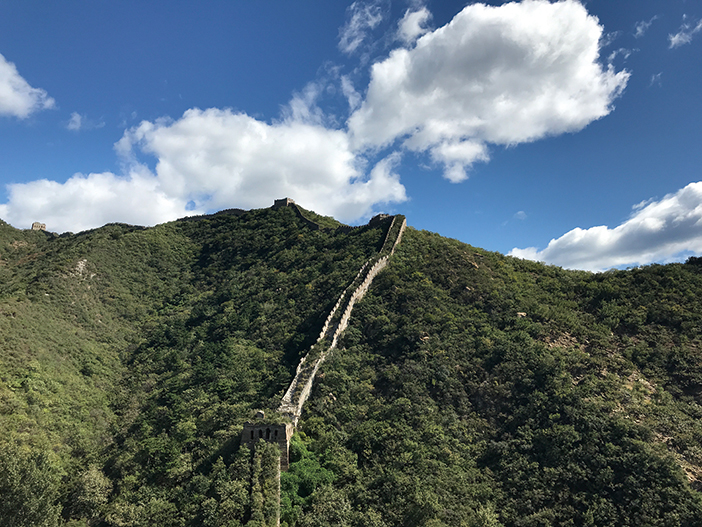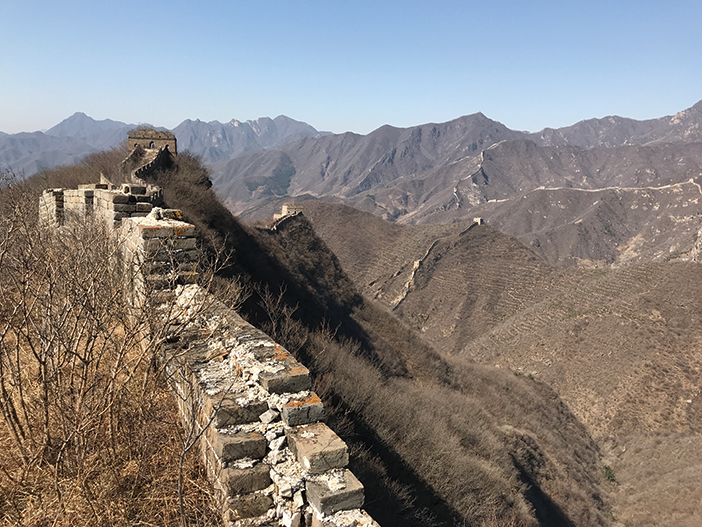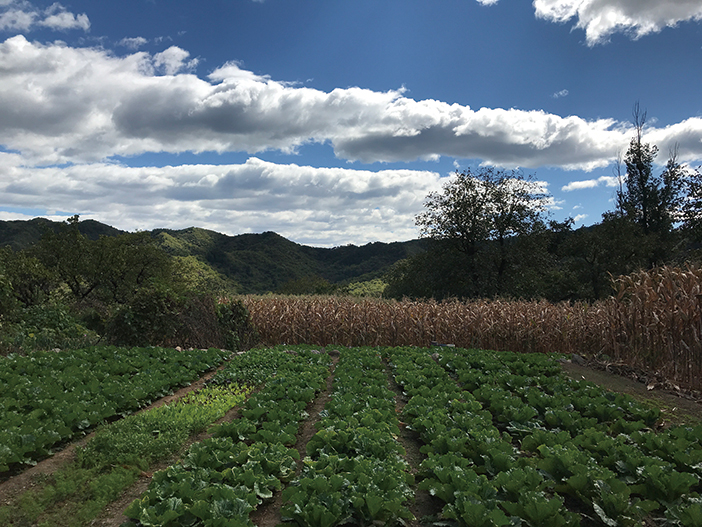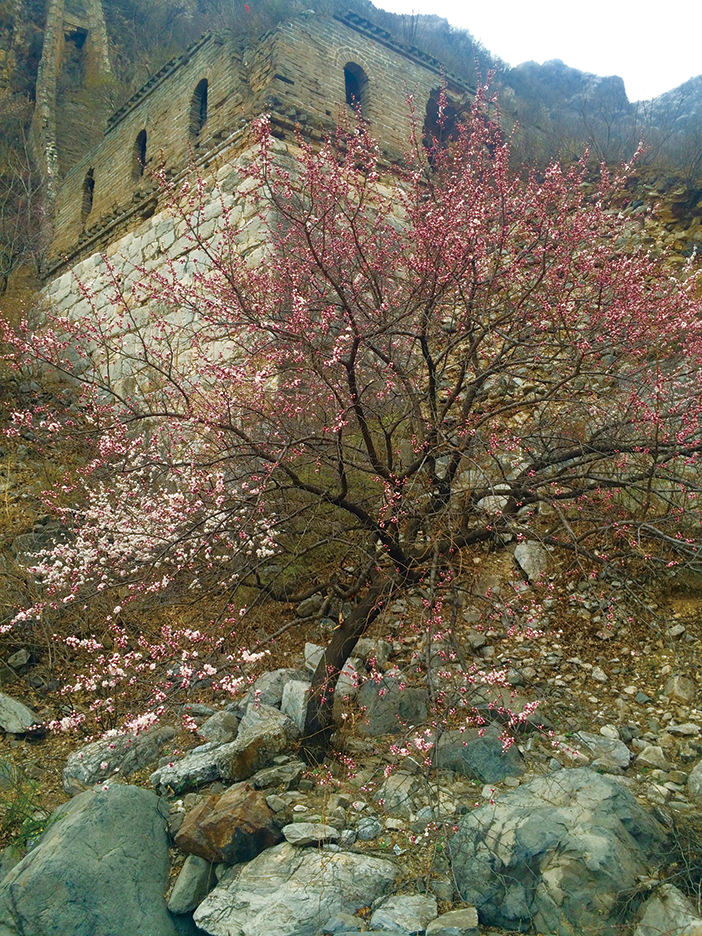There is no denying that Beijing is a full-on, noisy, crowded, round-the-clock city.
The pace of life is frenetic, the energy is palpable, and every day you’ll see something new – often involving something being transported on the back of a tuk-tuk.
Living here is, however, very much an urban experience that leaves many of us yearning for a view of something other than grey concrete.
Luckily, one of the amazing upsides of living in China’s capital is that it’s possible in a fairly short time, traffic willing, to escape the madness and to find peace, tranquility, and clean air, to get back in touch with nature and to do so within, ahem, spitting distance of one of the wonders of the world.
Just 90 minutes away from the CBD, the villages around the Great Wall offer numerous accommodation options: from swanky resorts to very basic hostels.
While these appeal for an occasional stay, people look to take the next step and rent somewhere longer-term: a place they can call their own (second) home, where they can watch the seasons unfold, cook on an open fire, get to know the local people, where children get a chance to dig around in the dirt and where an otherwise apartment-confined dog can have a proper run-around.
Given the growing numbers of people who fill the streets of the villages outside of Beijing – some weekends they seem to be busier than Sanlitun on a Saturday night – renting a place on the Great Wall seems to be an increasingly popular option.
Locations
While there are countless locations north, south, east, and west of Beijing, most people want to rent within walking distance of the Wall, to the north of the city. Some of the areas that are popular include the villages around Mutianyu, Bohai, Jinshanling, Jiankou, Gubeizhen, Huanghuacheng, and Beishichang. You can input ‘Great Wall’ (长城) on Airbnb or the Chinese equivalent Tujia to get some ideas as to the types of areas where other people are already renting (and sub-letting).
Approaching local people
Before you commit to an area long-term, go and hang out in a few villages – there are a lot who have nightly accommodation and they may also have information about places that are available for longer-term rent. Ask around and eventually, you’ll find someone who acts as the village broker and who knows everything and everyone.
What are you likely to get
Most houses are courtyard homes ‘siheyuan’, with windows and doorways facing into a courtyard, for good reason – they provide some shelter against the winds that blow in from the Gobi.
If you’re lucky, some rooms will come equipped with a ‘kang’, a raised platform that can be heated from underneath by an external fire. Don’t overdo the number of twigs you use, or you’ll end up spending your night like a rotisserie chicken, in constant rotation as you try to find a happy medium between your roasting underside and the rest of your body.
Accommodation is likely to be very basic: you’re renting from farmers and their way of life is, by western standards, simple. The toilet is most likely to be squat, the electrical wiring questionable, and the main source of cooking water might come from a tap outside in the courtyard.
In sum, if you’re after a place with all mod cons, then you are likely to be disappointed.
But take a different perspective – perhaps think of it as extremely comfortable camping – and you should have no trouble at all adapting to and coming to appreciate this more minimal existence.
Lock it in
Once you’ve found a place and negotiated the rent, you’re likely to be asked to pay your rent upfront for a year. Make sure you get some kind of contract, and if possible sign up for two years or longer at a fixed price.
Rents vary from as little as RMB 7k to as much as RMB 40k per year, depending on the condition of the property, the length of your lease, and whether you’re in an area which is already filled with weekend renters (where the price tends to be higher).
Things to be aware of
Expect to have surprise visits from your landlord. The western idea that ‘now I’ve rented this property, it’s mine’ does not apply. The upside is that you’ve got someone onsite, or close by, who will keep an eye out should things go wrong. Make them welcome: chances are you’re living in the place that was their home for the last 40 years.
Enjoy the seasons
Most expat wimps don’t venture to their village homes during winter: not only is there the issue of the bitter cold but also it’s likely that you will need to switch off your water from November through to early March and to drain all pipes in order to minimize the chances of them bursting.
Spring, summer, and autumn are fantastic seasons to make the most of your rural idyll.
In early spring, before the foliage starts to appear, you’ll get the full splendor of the topography.
Moving into summer, things start to green up and you can plant your own vegetable garden. In many houses, the landlord will do it for you, often without asking.
Summer evenings, just laze around, swat flies or wander down to the village square to hang out with the locals.
By late summer, as the night cools, fireflies will emerge to enchant you.
Autumn nights, wrap up and be entranced by the best form of entertainment: an open fire.
Watch in amazement at the toils of the local farmers – or even participate – during the harvesting season.
When winter comes around, get ready to shut up shop: put away anything that might freeze, seal up doors and windows and say a sad goodbye to your little piece of heaven till spring rolls back around.

This article first appeared in the beijingkids April 2019 Exploring Beijing issue.
Photos: Uni You

